Meet Some of Our New Faculty 2018-19
New faculty for the 2018-19 academic year briefly describe their research and teaching interests.
Capt. Todd Bahlau
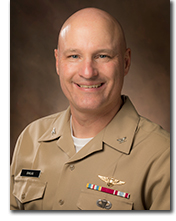 Department of Naval Science
Department of Naval Science
CAPT Bahlau (MA, Naval War College), USN, is a Naval Aviator whose assignments have included deployments aboard the USS Monterey (CG 61), USS Peterson (DD 969), USS Ticonderoga (CG 47), USS Enterprise (CVN 65), and USS Winston S. Churchill (DDG 81). He has logged over 2500 flight hours and has participated in Operations Southern Watch, Enduring Freedom, and Iraqi Freedom. He has commanded the 33rd Flying Training Squadron at Vance AFB (Enid, OK) and NAS Whiting Field (Milton, FL).
Jonathan Bauer
 Department of Biology
Department of Biology
Institute for the Environment & Sustainability
Dr. Bauer (PhD, Indiana University Bloomington) is a plant ecologist who researches the interactions between plants and microorganisms. This work has shown how soil microorganisms can shape plant communities and how mutualistic microorganisms can be used to improve the outcomes of ecological restoration. Dr. Bauer is looking forward to continuing this work at Miami University and applying these ideas to sustainable agriculture through research at the Institute for Food Farm.
Lt. Ryan Benroth
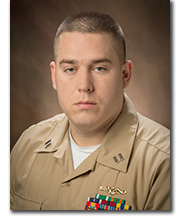 Department of Naval Science
Department of Naval Science
LT Benroth (BS, United States Naval Academy), USN, is a Submarine Officer who was previously assigned to USS Georgia (SSGN 729) where he served as mission Officer of the Deck and held the billets of Damage Control Assistant, Quality Assurance Officer, and Assistant Engineer. LT Benroth completed four deployments in the CENTCOM and AFRICOM areas of operations in support of the Global War on Terrorism, Operation Enduring Freedom, and three missions vital to national security.
Hannah Chapman
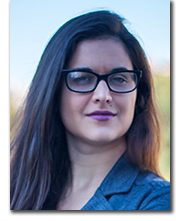 Department of Political Science
Department of Political Science
Havighurst Center for Russian & Post-Soviet Studies
Dr. Chapman's (PhD, University of Wisconsin–Madison) research and teaching are in the field of comparative politics with a particular focus on the former Soviet Union. Her research interests include comparative political behavior and public opinion, political communication, authoritarianism, post-Soviet politics, media politics, and quantitative methodology. Her work seeks to understand the factors that influence public support in non-democracies and how these factors can affect regime stability, looking specifically at communication and media strategies.
Matthew Crain
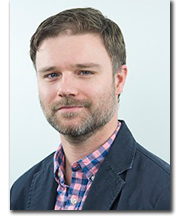 Department of Media, Journalism & Film
Department of Media, Journalism & Film
Matthew Crain's (PhD, University of Illinois at Urbana-Champaign) teaching and research are centered in the political economy of media and communications technologies. His current work focuses on the historical development and democratic implications of digital advertising and consumer surveillance. Previously he taught at Queens College, City University of New York.
Lt. Kevin Crank
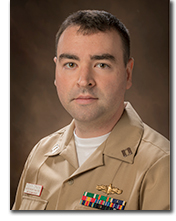 Department of Naval Science
Department of Naval Science
LT Crank (BS, United States Naval Academy), USN, is a Surface Warfare Officer whose assignments have included a deployment to the Western Pacific and overseas service in the Arabian Gulf. He served as Electronic Warfare Officer aboard the USS John Paul Jones (DDG 54) and as Operations Officer and Navigator aboard the USS Whirlwind (PC 11).
Elizabeth Hutton
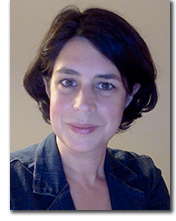 Department of English
Department of English
Howe Center for Writing Excellence
Dr. Hutton's (PhD, University of Michigan) interests lie at the intersection of writing studies, literacy studies, literary studies, and creative writing, especially as these fields have shaped college writing centers and writing courses. Her research has focused on college students' writing development and theories of literacy. Dr. Hutton's current project is a reconceptualization of Louise Rosenblatt's transactional theory of reading and writing and its implications for writing instruction.
Andrea Kravats
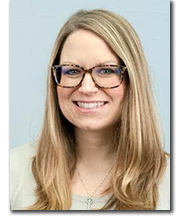 Department of Chemistry & Biochemistry
Department of Chemistry & Biochemistry
Dr. Kravats (PhD, University of Cincinnati) has extensive research experience in the area of molecular chaperones and protein quality control. She aims to apply her background in computational chemistry and biochemistry, tightly coupling theory and biochemical experiments, to elucidate the mechanisms of protein remodeling by chaperones in the endoplasmic reticulum. This work can guide future research in biomedical applications, such as designing effective immunotherapeutics for diseases involving misfolded or inactive proteins including cancer, neurodegenerative diseases, and type-II diabetes.
Imran Majid Mirza
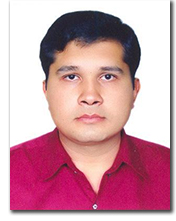 Department of Physics
Department of Physics
Dr. Mirza's (PhD, University of Oregon) research is in the area of theoretical quantum optics and quantum information processing. His research focuses on developing theoretical models of how light interacts with matter at a very small (atomic) scale in realistic situations where the system is allowed to interact with their surroundings (environment). In particular, he studies how some of the key aspects of light-matter interactions can be utilized to build novel quantum technologies and to understand the underlying fundamental physics.
Michael O'Connell
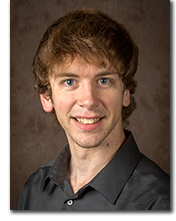 Department of Statistics
Department of Statistics
Dr. O'Connell (PhD, University of Minnesota) specializes in methods for analyzing high-dimensional data. His research focuses on data sets that contain multi-source data, in which there are multiple types of data that share a common set of subjects or share a common set of variables. Most recently, he has worked on methods for analyzing non-Gaussian multi-source data. He has also worked on projects in statistical genetics.
Trace Poll
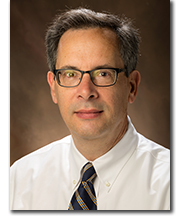 Department of Speech Pathology & Audiology
Department of Speech Pathology & Audiology
Trace Poll (PhD, The Pennsylvania State University) is a speech-language pathologist whose research focuses on developmental language disorders in school-aged children, adolescents and young adults. He is interested in developing better assessment practices and better defining the cognitive and linguistic characteristics of language-learning disorders. His work also focuses on enabling adolescents with disabilities to be better prepared for the transition from K-12 education to adult settings such as post-secondary training, employment, and community participation.
Matthew Regele
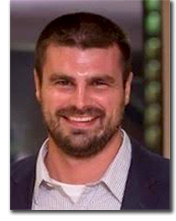 Department of Sociology & Gerontology
Department of Sociology & Gerontology
Dr. Regele's (PhD, Yale University) research explores how individuals understand and make choices in their work, and how these understandings and decisions impact organizational and extra-organizational phenomena. Currently, he is working on two major projects. In the first project, Dr. Regele is examining how employees of education-sector businesses interpret and respond to conflicting organizational goals. In the second project, he is studying the expectations and experiences of startup employees.
Hang Ren
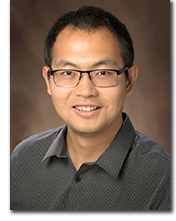 Department of Chemistry & Biochemistry
Department of Chemistry & Biochemistry
Dr. Hang Ren (PhD, University of Michigan) is a chemist interested in combining the power of electrochemistry and nanotechnology to address world problems related to health and energy. He studies the electrocatalytic processes at the nanoscale, which are fundamentally important for energy storage and conversion. He is also interested in applying electrochemistry in the medical settings, including developing on-demand drug release platforms.
Kevin Reuning
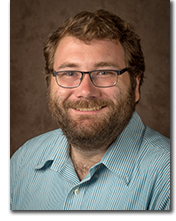 Department of Political Science
Department of Political Science
Dr. Reuning (PhD, The Pennsylvania State University) is a political scientist who uses big data methodology to study political parties and social movements in the United State. He completed his dissertation at The Pennsylvania State University. In it he showed that state parties respond not just to economic resources but also the relationships between the groups that constitute the party. He is also working on projects examining participation in protests, and the demobilization of the Tea Party movement.
Ann Wainscott
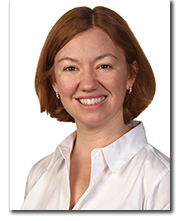 Department of Political Science
Department of Political Science
Though Dr. Wainscott (PhD, University of Florida) joined Miami last year, she was on leave to serve as the American Academy of Religion Senior Fellow at the United States institute of Peace in Washington, D.C. At USIP, her work analyzed the role of the religious sector in Iraq. She previously taught at Saint Louis University for four years. Her book, Bureaucratizing Islam: Morocco and the War on Terror, was published by Cambridge University Press last year.
Xin Wang
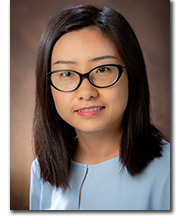 Department of Statistics
Department of Statistics
Xin Wang (PhD, Iowa State University) is a statistician whose research interests include spatial data analysis, Bayesian statistics, clustering and survey sampling. She has proved some theoretical results about convergence rates of MCMC algorithms and developed some statistical models which are applied to survey data. She is working on some projects related to small area estimation and subgroup analysis.
Sara Webb-Sunderhaus
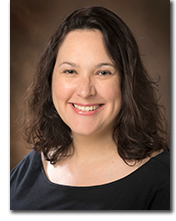 Department of English
Department of English
Dr. Webb-Sunderhaus's (PhD, The Ohio State University) research broadly focuses on issues surrounding literacy and identity in marginalized communities, with a particular interest in Appalachian students' literacy practices and beliefs. Her current project explores how Appalachians with advanced degrees negotiate the various literacy and identity decisions they face in their educational and professional careers.
Meixia Zhao
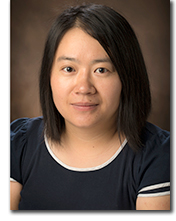 Department of Biology
Department of Biology
Dr. Zhao did her PhD dissertation and postdoctoral research at Purdue University. Her interests and focus are using a combination of bioinformatics, comparative and functional genomics, genetics and epigenetics approaches to study the mechanisms underlying structural and functional genomics changes within and between different species, with an emphasis on the determination of how transposable elements and polyploidy contribute to plant evolution, how transposons are epigenetically regulated, and genetic dissection of important traits in agronomically important crop species.

